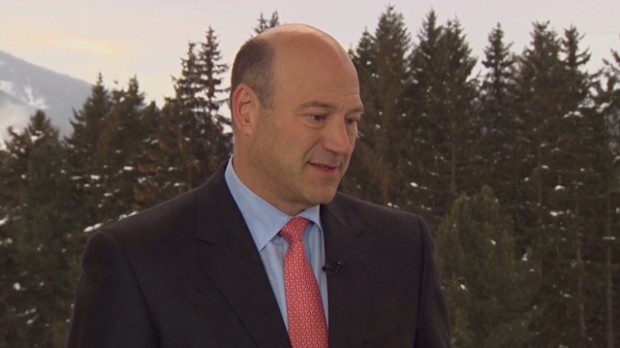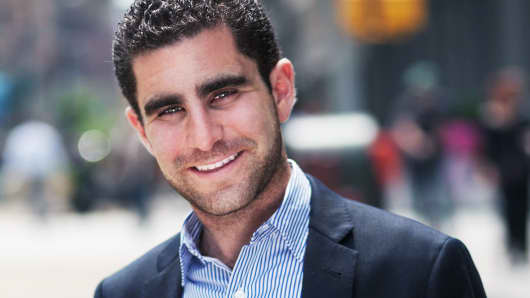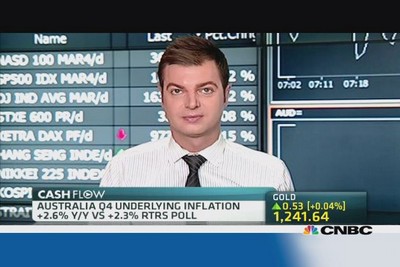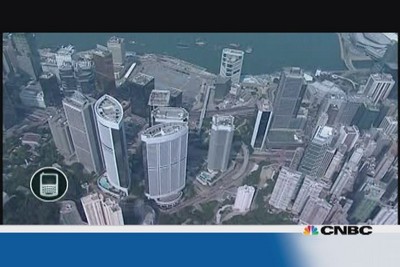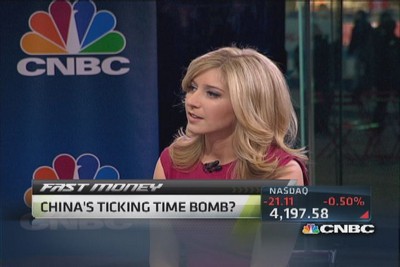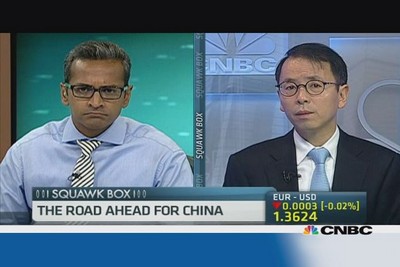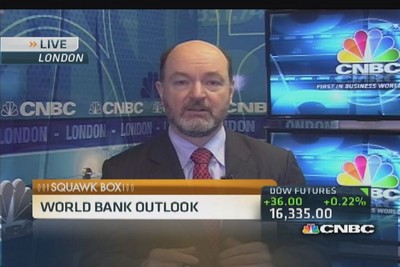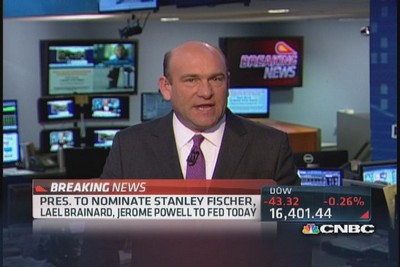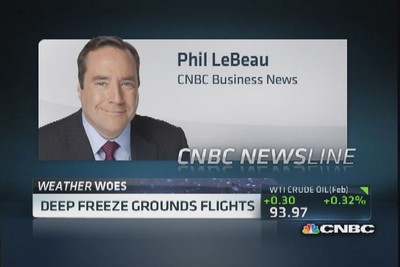China’s
new credit probably fell by a record in the second half amid a
crackdown on speculative lending, limiting prospects for economic
expansion this year as policy makers focus on controlling financial risks.
The
broadest measure, aggregate financing, was 7.1 trillion yuan ($1.2
trillion) based on published figures plus economists’ median
estimate
for December data due in coming days. That would be about 931 billion
yuan less than in July-to-December 2012, the largest drop in figures
going back to 2002.
China’s leaders are set to be tested in
their willingness to sacrifice economic growth to tame a record debt
buildup that’s evoked comparisons to
Japan
before its lost decade. Money-market cash crunches in June and December
highlighted President Xi Jinping’s efforts to rein in borrowing after a
$1.7 trillion first-half increase in aggregate financing.
“Their
focus is more about containing debt growth,” said Yao Wei, China
economist at Societe Generale SA in Hong Kong. “Sometime over the course
of 2014 they will realize the slowdown, the deceleration, is worse than
expected and they will loosen their stance a little bit.”
China’s
economy probably grew 7.6 percent in 2013, the State Council said last
month. That would tie 1999’s pace as the lowest since 1990 and be just
above the 7.5 percent growth goal for the year. Analysts surveyed by
Bloomberg News last month see a 7.4 percent expansion in 2014.
“For the sake of long-term sustainability, China should endure further growth deceleration than we are seeing now,” Yao said.
Credit Estimates
Estimates for December’s aggregate financing from 13 economists range from 1.04 trillion
yuan to 1.5 trillion yuan, with a median of 1.15 trillion yuan, and compare with 1.63 trillion yuan a year earlier.
China’s
cabinet, led by Premier Li Keqiang, has imposed new controls on the
multi-trillion-dollar shadow-banking industry with an order that targets
off-the-books loans and shores up enforcement of current rules, three
people familiar with the matter said this week. Last week, the National
Audit Office reported that local-government debt including contingent
liabilities swelled to a record 17.9 trillion yuan as of June.
Shadow
financing poses risks both to the system as a whole and to individual
lenders and borrowers. In the city of Tangshan in northern Hebei
province last week, Zhao Ge said he’s concerned he may lose part of the 1
million yuan he loaned to a steel plant has been idle for more than a
year. The government dismantled its furnace in a capacity-reduction
campaign in late November.
Principal Risk
“When I
loaned the plant money, I didn’t think too much about the risks -- I
thought about the 2 percent monthly interest,” said Zhao, who gave his
age as “almost 50.” “So far about a third of my principal has been paid
back, but the remaining two-thirds is in danger.
The People’s Bank of China may report that new local-currency
loans were 575 billion yuan in December, based on analysts’ median estimate, up from 454 billion yuan a year earlier.
The
broader decline in second-half new credit was the result of having
fewer projects to support, said Jimmy Zhu, an economist at FXPrimus Ltd.
in
Singapore.
‘‘In August and September of 2012, there was nearly a hard landing,”
Zhu said. The policies to aid the economy in the second half of 2013
weren’t as significant, he said.
System-wide credit growth, as
measured by the outstanding level of aggregate financing, may slow to
16.5 percent at the end of 2014 from 18.8 percent in 2013, Bank of
America Corp. said in a Jan. 6 report.
Default Chances
“Though
we don’t expect a nationwide debt and banking crisis, we believe the
chance of some bond and trust loan defaults will rise significantly in
2014,” economists led by Lu Ting in Hong Kong wrote. “The government may
also need some defaults to develop a more disciplined financial
market.”
Record debt threatens to trigger a financial crisis in
China, as liabilities at non-financial companies may rise to more than
150 percent of gross domestic product in 2014, according to Haitong
Securities Co.
China will probably see a relatively lengthy cash
squeeze in 2014, on local governments’ needs and increasing demand for
housing credit, Yi Xianrong, a researcher at the government’s Chinese
Academy of Social Sciences, wrote in an article published in yesterday’s
Securities Daily.
To contact Bloomberg News staff for this story: Xiaoqing Pi in Beijing at
xpi1@bloomberg.net; Scott Lanman in Beijing at
slanman@bloomberg.net
To contact the editor responsible for this story: Paul Panckhurst at
ppanckhurst@bloomberg.net



